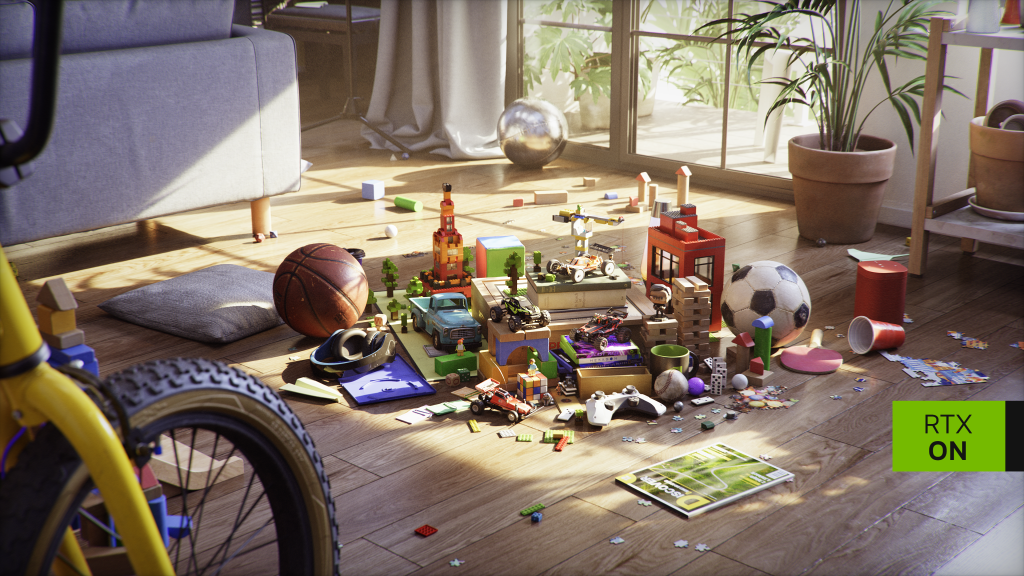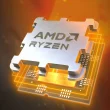Major video game companies such as Activision, Warner Bros, and Walt Disney are currently facing significant challenges due to a strike by Hollywood performers. This strike, organised by unions like SAG-AFTRA, centers on concerns over the use of artificial intelligence (AI) in the gaming and entertainment industries. Artificial Intelligence (AI) is poised to radically change the gaming industry, bringing unprecedented changes that will shape the future of how games are developed, played, and experienced. We look at five key ways AI is going to change gaming forever:
Enhanced Game Design and Development
Procedural Content Generation: AI is transforming game design through procedural content generation, where algorithms create game environments, levels, and characters dynamically. This reduces the workload on human developers and enables the creation of vast, unique game worlds. For instance, games like No Man’s Sky use procedural generation to create entire universes with diverse planets and ecosystems, ensuring no two player experiences are identical.
AI-driven NPCs and Characters: AI is improving the behavior and intelligence of non-player characters (NPCs). Instead of following pre-programmed scripts, NPCs can now learn and adapt based on player interactions. This leads to more realistic and unpredictable behaviors, enhancing the overall immersion. Games like Middle-earth: Shadow of Mordor employ the Nemesis System, where enemy characters remember past encounters with the player and adapt their strategies accordingly.
Automated Testing: AI is streamlining the game development process through automated testing. AI-driven bots can play through games to identify bugs, balancing issues, and performance bottlenecks much faster than human testers. This accelerates the development cycle and helps ensure a more polished final product.
Personalised Gaming Experiences
Adaptive Difficulty Levels: AI algorithms can analyse a player’s skill level and playing style to dynamically adjust the game’s difficulty. This personalised approach ensures that games remain challenging yet enjoyable, catering to both novice and experienced players. For example, the game Resident Evil 2 employs a dynamic difficulty system that adjusts based on the player’s performance.
Tailored Content and Storylines: AI can create personalised storylines and quests based on player choices and behavior. This ensures that each player’s journey through the game feels unique and engaging. Narrative-driven games like The Witcher 3: Wild Hunt will benefit from AI by offering branching storylines that adapt to the player’s decisions, providing a more immersive and personalized experience.
Customisable In-game Assistants: AI-powered in-game assistants can provide real-time tips, hints, and guidance tailored to the player’s needs. These assistants can analyse gameplay patterns to offer useful advice, helping players overcome challenges without disrupting immersion.
Realistic Environments
Advanced Graphics and Physics Simulation: AI is enhancing the realism of game environments through advanced graphics and physics simulations. AI-driven algorithms can create more detailed textures, lifelike animations, and realistic lighting effects. For instance, NVIDIA’s AI-powered DLSS (Deep Learning Super Sampling) technology improves graphics performance and visual fidelity, allowing for more realistic game worlds.

Intelligent Sound Design: AI is enhancing sound design by generating adaptive audio environments. AI can analyze in-game events and adjust sound effects and music dynamically to match the action, creating a more immersive auditory experience. Games like Hellblade: Senua’s Sacrifice use AI to generate binaural audio, which enhances the sense of presence and immersion.
Virtual Reality (VR) and Augmented Reality (AR): AI is integral to the advancement of VR and AR technologies. AI algorithms can track player movements, predict actions, and create more responsive and immersive VR/AR experiences. For example, AI-powered hand tracking and gesture recognition systems in VR headsets enhance the sense of presence and interaction within virtual environments.
Improved Multiplayer and Social Experiences
Smarter Matchmaking Systems: AI is refining matchmaking systems in multiplayer games by analysing player behavior, skill levels, and preferences to create more balanced and enjoyable matches. This leads to fairer competitions and better player retention. Games like Fortnite and Overwatch utilise AI to optimise matchmaking, ensuring players are paired with others of similar skill levels.
AI-driven Moderation and Community Management: AI is enhancing online gaming communities by automating moderation and detecting toxic behavior. AI algorithms can monitor chat logs, identify harmful language, and enforce community guidelines, creating a safer and more welcoming environment for players. Platforms like Twitch use AI to detect and moderate inappropriate content in real-time.
Dynamic In-game Events: AI can orchestrate dynamic in-game events that respond to the collective actions and behaviors of the player community. These events can create a sense of shared experience and excitement. For instance, AI-driven live events in games like Fortnite bring players together unique, time-limited experiences that evolve based on player participation.
New Business Models and Opportunities
AI-generated Content and Assets: AI can create high-quality game assets, such as textures, models, and animations, at a fraction of the cost and time of traditional methods. This democratises game development, allowing smaller studios and indie developers to compete with larger companies. Platforms like Artbreeder enable artists to use AI to generate unique visual assets for their games.
Data-driven Monetisation Strategies: AI analyzes player data to optimize monetisation strategies, such as in-game purchases, ads, and subscriptions. By understanding player preferences and spending habits, developers can now offer more personalised and appealing monetisation options, increasing revenue while enhancing player satisfaction.
AI-powered Game Analytics: AI provides deeper insights into player behavior through advanced analytics. Developers can use these insights to improve game design, balance, and content updates. For example, AI-driven analytics platforms like GameAnalytics help developers track player engagement and identify areas for improvement.
Impact on Employees
Activision, known for blockbuster franchises like Call of Duty and World of Warcraft, relies heavily on the talents of voice actors and motion capture performers to bring their characters to life. Warner Bros, with its extensive portfolio of video games including the Batman: Arkham series, and Walt Disney, famous for its crossover into gaming through Kingdom Hearts and other franchises, are also deeply integrated with Hollywood talent. These companies are at the forefront of using cutting-edge technology to enhance gaming experiences, which now includes leveraging AI to streamline production and create more immersive worlds.
The recent strike action aims to address the ethical and economic implications of AI usage. As negotiations continue, this strike highlights the broader debate over the role of AI in creative industries and the need for updated regulations and agreements that safeguard the rights and interests of human performers. The outcome of this strike could set a significant precedent for how AI is used across both the gaming and entertainment sectors.








